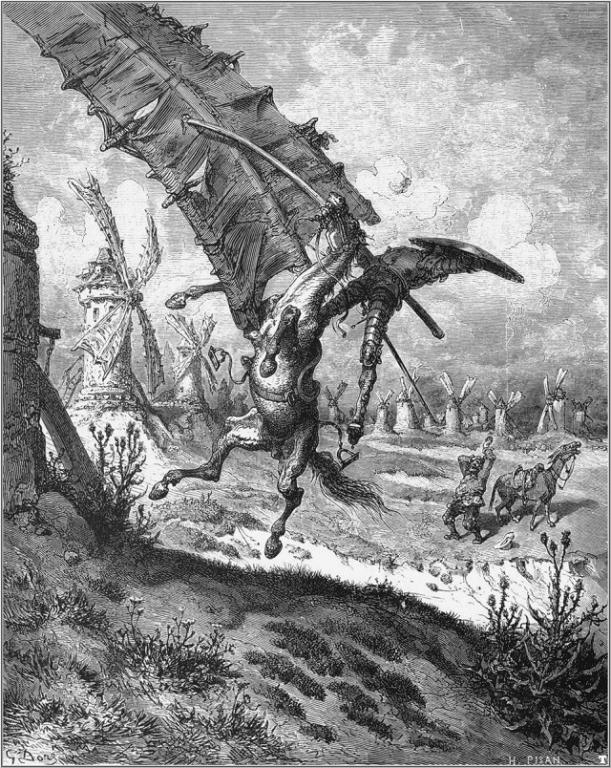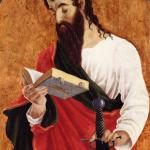Including a Lengthy Analysis of 2 Peter 1:20: “no prophecy of scripture is a matter of one’s own interpretation.”

Anti-Catholic polemicists David T. King and William Webster produced a self-published three-volume series entitled Holy Scripture: The Ground and Pillar of Our Faith (2001). Volume 1 from David T. King is entitled A Biblical Defense of the Reformation Principle of Sola Scriptura.
I have the set in my library (they were given to me; I’d never buy ’em). I was looking through them as a result of some recent discussions, and noticed that Vol. I had an “Index of Scriptural References.” I was curious as to whether King included some of the better-known Catholic biblical arguments against sola Scriptura. I was amused but not shocked by what I found.
Sola Scriptura, by definition (including King and Webster’s own definition, which is standard), asserts that no authority is infallible and binding on Christian believers except the Bible. Therefore, if either the Church or sacred tradition are described as infallible in the Bible, this is a disproof of sola Scriptura. Likewise, if any given Church father asserts one or both of those propositions, then he shows that he rejects sola Scriptura.
The Jerusalem Council is, in my opinion, the best biblical argument in favor of the infallible authority of the Church (especially the part where St. Paul proclaims its decisions as binding upon Christian believers in many areas: Acts 16:4). I’ve written about it many times (search “Jerusalem Council” on my Bible and Tradition web page to find those papers). Therefore, any work defending sola Scriptura from Scripture (I wrote a book refuting it from Scripture), would obviously have to include a treatment of it, right?
Wrong! King thought it was irrelevant enough to completely ignore it. He referred to passages from twelve different chapters of the book of Acts, but completely ignores chapter 15, which describes the Jerusalem Council. Thus, it’s an instance of the time-honored anti-Catholic methodology: “if you have no argument against a good Catholic argument, simply pretend that it doesn’t exist.”
How about the Ethiopian eunuch? This clearly has relevance to the sola Scriptura debate, and especially concerning the perspicuity (clearness) of Scripture:
Acts 8:30-31 (RSV) So Philip ran to him, and heard him reading Isaiah the prophet, and asked, “Do you understand what you are reading?” [31] And he said, “How can I, unless some one guides me?” And he invited Philip to come up and sit with him.
We would want to know how a defender of sola Scriptura from the Bible addresses this. We won’t learn from King, because he utterly ignores it. Another classic and important passage in this all-important debate is the following:
2 Peter 3:15-16 . . . So also our beloved brother Paul wrote to you according to the wisdom given him, [16] speaking of this as he does in all his letters. There are some things in them hard to understand, which the ignorant and unstable twist to their own destruction, as they do the other scriptures.
How does King interpret / deal with this? Again, we don’t know, because it never appears in his book. How about the following passage, which clearly bears upon the debate?:
Nehemiah 8:1-3, 7-8 And all the people gathered as one man into the square before the Water Gate; and they told Ezra the scribe to bring the book of the law of Moses which the LORD had given to Israel. [2] And Ezra the priest brought the law before the assembly, both men and women and all who could hear with understanding, on the first day of the seventh month. [3] And he read from it facing the square before the Water Gate from early morning until midday, in the presence of the men and the women and those who could understand; and the ears of all the people were attentive to the book of the law. . . . [7] Also Jesh’ua, Bani, Sherebi’ah, Jamin, Akkub, Shab’bethai, Hodi’ah, Ma-asei’ah, Keli’ta, Azari’ah, Jo’zabad, Hanan, Pelai’ah, the Levites, helped the people to understand the law, while the people remained in their places. [8] And they read from the book, from the law of God, clearly; and they gave the sense, so that the people understood the reading.
Again, we get crickets. Nehemiah 8:3, 8 are referenced, along with many other passages: described by King’s words: “The Bible cries out to be read” (p. 99). But he doesn’t address the fact that it also needs to be authoritatively interpreted, as it was in this passage, and in the two others above.
He does manage to fire off two perfunctory sentences about another very important prooftext against sola Scriptura:
1 Timothy 3:15 . . . the church of the living God, the pillar and bulwark of the truth.
King opines: “The Church’s role is to be a support to the truth by faithfully holding forth the message and authority of the written Scriptures. It is not independent of, or above Scripture, but beneath it” (p. 82). That may sound all well and good, as preaching to the anti-Catholic choir, but it has a huge problem: the text doesn’t say that at all! It’s a classic instance of eisegesis: reading into Scripture one’s preconceived notions. The Church is here described as a pillar of “the truth“: not Scripture.
Yes, of course all Christians agree that Scripture is true, inspired revelation. But it is not the sum total of all truth. “Truth” in Scripture is a very broad concept, and when it is mentioned, it’s usually not in conjunction with Holy Scripture. We might note a passage like Psalm 119:160: “The sum of thy word is truth.” But “word” / “word of the Lord” is also a very broad notion in Scripture, encompassing God’s Word as spoken through prophets, or orally, as at Mt. Sinai, or through gospel preaching.
“Word” and “truth” in Scripture both extend far beyond Scripture. Therefore, King can’t possibly maintain that “truth” in 1 Timothy 3:15 only refers to Scripture. He simply reads that notion into the passage, and in so doing, doesn’t honestly address its implications for sublime, binding, infallible Church authority.
Alas, I have found one passage that Catholics bring up in this debate, that King not only took note of, but seriously grappled with:
2 Peter 1:20-21 First of all you must understand this, that no prophecy of scripture is a matter of one’s own interpretation, [21] because no prophecy ever came by the impulse of man, but men moved by the Holy Spirit spoke from God.
On pages 94-97, King makes an extended argument, to the effect that “interpretation” in 1:20 is not to be understood in the common sense (seeking to understand, study, apply the passage; a warning against merely private interpretation, etc.), but rather, as simply reiterating what the next verse says: “the divine origin of Scripture, not . . . its proper interpretation” (citing Cleon L. Rogers, Jr.). King (pp. 96-97) even musters up four Church fathers (three of them rather minor and obscure ones) to bolster his “non-interpretation” interpretation of 2 Peter 1:20.
Now, if King wants to get into “comparative citations of commentators / Church fathers,” I can play that game with him, too (even by citing all Protestant commentators). And so, for example, we have Ellicott’s Commentary for English Readers:
There can be little doubt that “interpretation,” or “solution,” is the right rendering here, although others have been suggested. The main question however, is the meaning of the word rendered “private,” which may also mean “its own.” . . . The term may refer (1) to the recipients of the prophecies—that we may not expound prophecy according to our own fancy; or (2) to the utterers of the prophecies—that the prophets had not the power of expounding their own prophecies; . . . Either of the other two explanations may be right. (1) If prophecy came “by the will of man,” then it might be interpreted according to man’s fancy. But it did not so come; consequently the interpretation must be sought elsewhere—viz., at the same source from which the prophecy itself proceeded. (2) If the prophets spoke just as they pleased, they would be the best exponents of what they meant. But they spoke under divine influence, and therefore need not know the import of their own words. Prophecy must be explained by prophecy and by history, not by the individual prophet. The whole body of prophecy, “the prophetic word” (2Peter 1:19), is our lamp in the wilderness, not the private dicta of any one seer. In modern phraseology, interpretation must be comparative and scientific. This view is strengthened by comparing 1Peter 1:10-12, where it is stated that the prophets did not know how or when their own predictions would be fulfilled. Possibly this passage is meant to refer to 1Peter 1:10-12, . . .
King mocks Catholic interpretations of the passage as self-evidently false and a result of dishonest special pleading and upholding of Catholic dogmas. He acts as if our take on the passage “defies all rules of grammatical and contextual consideration” (p. 97). This is typical extreme anti-Catholic polemics and deluded supposed “certainty.” In fact, intelligent and respected Protestant commentators think that the passage is not all that clear-cut and obvious as King thinks. For example, Presbyterian Albert Barnes, in his famous Barnes’ Notes on the Bible:
Is of any private interpretation – The expression here used (ἰδίας ἐπιλύσεως idias epiluseōs) has given rise to as great a diversity of interpretation, and to as much discussion, as perhaps any phrase in the New Testament; and to the present time there is no general agreement among expositors as to its meaning.
I think, given all of this remarkable “diversity” of opinion and “no general agreement”, that the usual Catholic interpretation may be admitted into consideration without being immediately dismissed as fundamentally dishonest. But that’s what anti-Catholics always must do. More fair-minded apologists and Bible students simply enter into the interesting discussion of what the text means, and how it should be applied to our day-to-day Christian lives. They grant good faith and sincerity to those who disagree with them. Not so, David T. King and his anti-Catholic minions and armies of the night.
Meyer’s NT Commentary notes that at least some commentators feel that “the interpretation is then not an easy, but a difficult matter.” Expositor’s Greek Testament also notes that this is a complex matter; not a simple one:
It seems most satisfactory to understand ἰδ. ἐπιλ. as the meaning of the prophet himself, or what was in the prophet’s mind when he wrote; the fulfilment in any particular generation or epoch. “The special work of the prophet is to interpret the working of God to his own generation. But in doing this, he is laying down the principles of God’s action generally. Hence there may be many fulfilments of one prophecy, or to speak more exactly, many historical illustrations of some one principle of Providential Government” (Mayor, p. 196). The genitive ἐπιλύσεως is gen. of definition and not of origin. “No prophecy is of such a nature as to be capable of a particular interpretation.”
The Catholic Navarre Commentary opines:
Prophecy and Sacred Scripture in general are not man-made; they are the word of God: there is nothing in the Bible that is/not inspired by the Holy Spirit (v. 21). Therefore, against the false teachers of his time and of all eras, the sacred writer rejects any interpretation of Scripture based exclusively on human ingenuity; . . .
Scott Hahn, in his Ignatius Catholic Study Bible, gives a full Catholic reading of the passage:
The Spirit who inspired the prophecies of the OT is alone capable of interpreting them. By contrast, merely human intelligence can never ascertain their proper meaning without the divine assistance of the Spirit. The ramifications of this teaching are implied rather than stated, for Peter does not identify those who are authorized to give a correct interpretation of Scripture. Some contend that every believer who possesses the Spirit is automatically qualified for the task, but no such teaching can be found in the NT. On the contrary, we learn from other passages that the Spirit guides the Church into all truth through her apostolic leaders and their successors (Jn 14:26; 16:13), who serve as teachers and guardians of the Christian faith (1 Tim 6:20; 2 Tim 1:14; 2:2). This explains why Peter, being an apostle, expects readers to accept his teaching on Scripture as authoritative and reliable, whereas the false teachers among them are denounced for twisting its meaning (2 Pet 3:15-16).
Scott sends his readers to his related commentary on John 14:26: “But the Counselor, the Holy Spirit, whom the Father will send in my name, he will teach you all things, and bring to your remembrance all that I have said to you.”:
The terms “you” and “your” in this verse are plural. It is thus a promise to guide and instruct the ordained leaders of the Church, here represented by the eleven apostles. It is not a promise that the Spirit will grant every individual Christian supernatural insight into the full meaning of the gospel or the Scriptures (2 Pet 1:20-21).
All in all, it’s a rather poor showing for David T. King. He expounds upon only one of the major Catholic biblical counter-arguments against sola Scriptura, and the one he chooses to write about has, according to Albert Barnes, “given rise to as great a diversity of interpretation, and to as much discussion, as perhaps any phrase in the New Testament” leading to “no general agreement among expositors as to its meaning.”
Very pathetic indeed. James White: the most influential anti-Catholic polemicist today, is always carping on and on about how Catholic apologists supposedly routinely ignore the best arguments for the opposing positions. Well, here is an example of his buddy David T. King falling into precisely the same shortcoming. The illustrious Pastor King seems to care little for taking into consideration all of the relevant scriptural passages in the sola Scriptura debate. He prefers to ignore those that might give his position trouble, and only use carefully selected Bible passages. This is standard anti-Catholic methodology and it stinks to high heaven.
In my book against sola Scriptura, on the other hand, the final 10%, or 13 pages, was devoted to 14 alleged prooftexts from the Bible in favor of sola Scriptura. I didn’t ignore my opponents’ arguments. I tackled them head on. In fact, I also wrote an entire book in reply to the two men widely considered to be the best historic defenders of sola Scriptura: William Whitaker (1548-1595) and William Goode (1801-1868). King wrote in his book: “of all the treatments dealing with sola Scriptura, the work of William Goode, The Divine Rule of Faith and Practice, has never been surpassed” (p. 17).
That’s my confident methodology. King’s is quite different.
***
Photo credit: Don Quixote fighting a windmill. Illustration 6 (1863) for Miguel de Cervantes’s Don Quixote by Gustave Doré, (1832-1883). [public domain / Wikimedia Commons]
***













